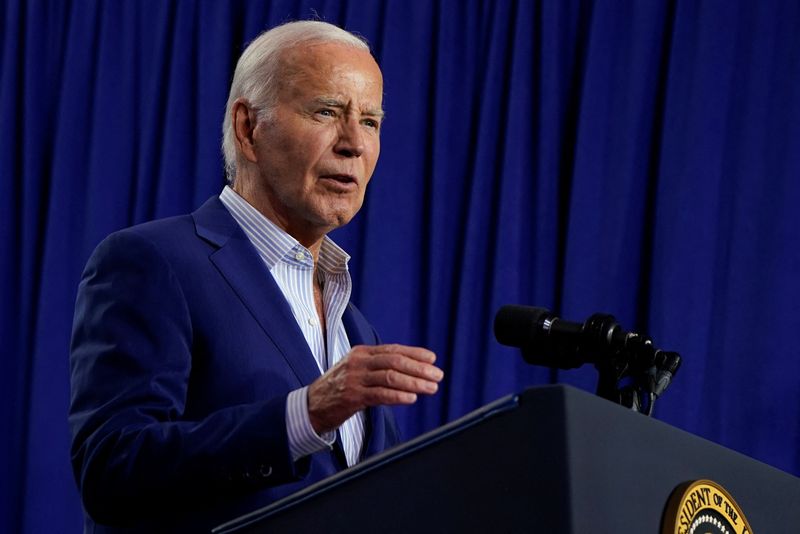Business
The Horizon architect under the spotlight

By Nalini Sivathasan, Lorna Acquah and Emma Simpson, BBC News
 Alamy
AlamyThe former Fujitsu engineer who helped design the faulty Horizon software at the centre of the Post Office scandal is under the spotlight this week.
You might not have heard of Gareth Jenkins until now but he has become a key figure during the long-running Post Office Inquiry.
He will be questioned at the inquiry over his involvement in the scandal, which saw more than 900 sub-postmasters wrongly prosecuted between 1999 and 2015 after Horizon made it look like money was missing from branch accounts.
On Tuesday Mr Jenkins will begin giving evidence over four days – the longest run of questions any witness has faced. Here’s why what he’s got to say is so important.
The so-called ‘architect’ of Horizon
His appearance is keenly anticipated, having been postponed twice.
A top lawyer working for the Post Office once described Gareth Jenkins as an “unreliable god”, the inquiry heard.
For sub-postmasters, this so-called “architect” of Horizon has become as well-known as former Post Office CEO Paula Vennells.
“His name has featured repeatedly, often many times a day throughout these hearings,” says David Enright, solicitor with Howe & Co, which represents many of the victims.
He believes Mr Jenkins will be “subjected to the most robust questioning” at the inquiry.
He failed to disclose bugs and remote access
 PA
PAFrom 2005, Mr Jenkins was pivotal in helping the Post Office defend its faulty computer software system in criminal and civil cases.
“He was the ‘go to’ Fujitsu expert on any question of its reliability,” says David Enright.
In 2010, Mr Jenkins gave evidence in the trial of Seema Misra at Guildford Crown Court.
She told the BBC: “I was naïve at that time. I thought it was a good thing that he was working for Fujitsu because he would know the system inside out.
“If anything was going wrong in Horizon, he would have seen it.”
What Mrs Misra did not know was that shortly before the trial, Mr Jenkins had flagged a bug that affected dozens of branch accounts, and that he had suggested remotely accessing their computer terminals as one way of fixing the problem.
Mr Jenkins did not disclose this in court. Mrs Misra was found guilty of theft and false accounting and was sent to prison whilst pregnant.
If the problems had been revealed at the time, it could have stopped all the prosecutions in their tracks.
Two years later, solicitors acting for sub-postmaster Kim Wylie asked about remote access. Mr Jenkins sought guidance on what to say, warning a Post Office lawyer that including this possibility could lead to more scrutiny of the organisation.
His final witness statement confirmed that this could happen, and he went on to say in his final version that altering branch accounts in this way was rare and needed to be authorised by the Post Office.
He was meant to be impartial in court
Mr Jenkins appeared as an expert witness in a number of Post Office prosecutions of sub-postmasters.
The law states that expert witnesses must be independent and unbiased. But the inquiry has heard evidence that lawyers never properly instructed Mr Jenkins about his duties.
Documents obtained by the BBC earlier this year showed that a Post Office prosecutor suggested Mr Jenkins should rephrase some of his court testimony used against Seema Misra, which strengthened his assertions over the robustness of Horizon.
IT expert Jason Coyne, who was once used as an expert witness in a Post Office case, believes Mr Jenkins was someone the Post Office could “manage”.
“We sometimes call people the ‘hired guns’. There’s a risk that’s what the Post Office was trying to do with him,” says Mr Coyne.
The BBC understands Mr Jenkins was involved in at least 15 Post Office investigations.
From ‘tainted’ witness to ‘shadow expert’
By 2012, independent forensic investigators Second Sight were brought in to examine the Horizon system.
At the time they praised Mr Jenkins’ “superb” expertise – not knowing that his evidence was being used in the courts.
However, soon after their interim report, revealing several bugs, the Post Office received legal advice warning that Mr Jenkins’ previous omissions had “fatally undermined” his credibility as an expert witness, and they should stop using him.
But Mr Jenkins remained a key figure behind the scenes.
He provided technical support and information to witnesses who testified at the 2019 Bates v Post Office trial, despite not being called to give evidence.
During the trial, lawyers representing sub-postmasters labelled him a “shadow expert” – someone who advises but does not testify in court.
The Post Office was criticised for not acknowledging that his absence might have related to its concerns over his evidence in the past criminal prosecutions.
The judge, Mr Justice Fraser, recommended that the head of the Crown Prosecution Service start an investigation into perjury against Mr Jenkins.
His expertise came at a price
As part of its contract with the Post Office, Fujitsu provided support for legal cases involving the Horizon system.
But that didn’t always cover Mr Jenkins’ work, so the Post Office had to pay extra.
The inquiry heard sometimes costs were a factor in whether the Post Office adequately investigated concerns over shortfalls in sub-postmasters’ branches.
When sub-postmaster Grant Allen experienced a shortfall of £3,000 at his branch in Cheshire, a lawyer working for the Post Office asked Mr Jenkins for an estimate for two days of data analysis.
Emails from December 2012 released by the inquiry show Mr Jenkins replied, saying “data up to 7 years is freely available. Two days of my time costs around £2k-£2.5k.”
The decision to do the data analysis was ultimately rejected.
The BBC put the contents of this story to Mr Jenkins. A lawyer representing him said it would be “inappropriate” for him to comment ahead of him giving evidence at the inquiry.
The Post Office said it gave a “heartfelt apology” to victims and “remained focused” on supporting the ongoing inquiry.
Fujitsu declined to answer the BBC’s specific questions but said it regards “this matter with the utmost seriousness”.
Business
UK polls point to a big Labour win. The party fears voter complacency

Labour leader Keir Starmer poses for photos as he visits the Vale Inn on June 27, 2024 in Macclesfield, United Kingdom. In the final week of campaigning, Labour outlined its plans to expand opportunities for young people.
Cameron Smith | Getty Images News | Getty Images
LONDON — There’s been one main narrative since the U.K.’s Conservative Prime Minister Rishi Sunak called a general election back in May — that the opposing Labour Party would win the vote with a landslide.
While voter polls may have differed in scale and methodology, the results have pointed in one direction, showing that the center-left Labour Party has around a 20-point lead on the Conservatives. Labour is on track to win around 40% of the vote while roughly 20% of the support is projected to go to the Tories, according to a Sky News poll tracker.
Reform UK, led by arch-Brexiteer Nigel Farage, is seen with 16% of the vote, after eating away at Tory support, while the Liberal Democrats are seen gaining around 11% and the Greens with 6%. The Scottish National Party is predicted to win 2.9% of the vote.
Labour candidates and leader Keir Starmer have been keen to play down the level of support that the party enjoys, fearing voter complacency and the appearance of “having it in the bag” — a stance that could prompt voter apathy and a lower turnout of supporters at the polls, or a backlash from Conservative-inclined sections of the electorate.
“The Labour Party wants to be able to be convince voters that it’s absolutely central that they turn out and vote, because otherwise the Tories will win, and the Tories are desperate for people to think that they have still got a chance, and therefore it’s worth turning up,” Britain’s top polling expert John Curtice told CNBC.
Question marks have risen in the past over the accuracy of British voter polls, with previous projections over or underestimating support for various political parties. The errors have often come about because of inadequate sampling or of factors that are harder to control, such as voters being “shy” when polled on which party they intended to support.
Labour Party leader Sir Keir Starmer speaks ahead of the U.K.’s general election on July 4, 2024.
Anthony Devlin | Getty Images News | Getty Images
This year, however, experts tend to agree that the polls show such a swing to Labour that, even if the scale of support were wrong, the overall result would be the same: a convincing win for the opposition party.
“My attitude is [that] a poll should be taken but not inhaled,” Curtice said wryly. “The point is, you shouldn’t be looking at them to provide you with pinpoint accuracy, they should give you a reasonable indication of the direction of travel.”
“It just so happens that because this is an election in which apparently one party is so far ahead, much as [it was] in 1997, the polls could be quite a bit out — but nobody will notice,” he noted, referencing the year when the Labour Party won a landslide against the Conservatives, ending the latter party’s then 18-year rule.
Labour ‘spin’?
The Labour Party itself is understandably keen to downplay the polls, with a spokesperson telling CNBC that the party doesn’t comment on projections, “as they vary and fluctuate.”
“Instead, we’re working hard to take our message of change to voters ahead of the only poll that matters, on 4 July,” the spokesperson stated.
On Monday, Keir Starmer said no vote should be taken for granted, asking his supporters to continue campaigning until polls closed on Thursday.
“The fight for change is for you, but change will only happen if you vote for it. That is the message we have to take to every doorstep these last few hours and days until 10 o’clock on Thursday night.”
“Nothing must be taken for granted, every vote has to be earned. The polls don’t predict the future, we have to get out there,” he told campaign supporters in Hitchin.
Labour leader Sir Keir Starmer during a visit to Hitchin, Hertfordshire, while on the General Election campaign trail. Picture date: Monday July 1, 2024.
Stefan Rousseau – Pa Images | Pa Images | Getty Images
Labour’s former campaign and communications directors, Alastair Campbell, one of the chief strategists behind the rebranding of the party in the 1990s as ‘New Labour’ ahead of its monumental election win in 1997, told CNBC that he doubts current voter polls.
“I get really worried about about the way that these election debates are now unfolding, virtually everything in the debate at the moment is about these opinion polls,” he told CNBC two weeks ago.
“Apart from a few postal votes, nobody’s voted yet. And I just do not for one second believe that the Conservatives are going to get virtually wiped out, I just don’t believe it,” he said.
“I just think there’s something going very, very wrong with these polls, I could be completely wrong, and it’s true that Labour have been consistently ahead. But I just wish that, in our election periods, we would talk less about polls and more about what the parties are saying.”

Polling expert Matt Beech, director of the Centre for British Politics at the University of Hull, said Campbell’s position was designed to persuade Labour-inclined voters to cast their ballots.
“They want to make sure that they get as big a majority as possible. They’re all very much aware of [the lead-up to the election in] 1992 with the phenomenon of ‘shy Tories,’ when the polls said Labour would win and they didn’t …. [But] they’re not actually that genuinely worried about that. What they want to have a 1997-like landslide tsunami,” Beech told CNBC.
He added, “So if you keep banging on that drum [that the polls are not correct], you’re going to say to Labour-inclined voters, ‘please go out and vote.’ But it’s not that ‘we’re actually scared we’re not going to win, we are going to win comfortably. But we want a majority that enables us to push our agenda and we want this win to mean that we’re there for two terms.’“
Business
Ad-supported Murdoch Netflix rival to launch in the UK

Rupert Murdoch’s Fox Corporation is entering the UK’s highly competitive free, ad-supported video streaming market.
Tubi will compete with the likes of Netflix, Disney+, ITVX, Channel 4’s streaming platform as well as the BBC iPlayer.
The platform has been quickly gaining market share in the US where, according to Fox, it has almost 80 million monthly active users.
In the UK, Tubi says it will offer more than 20,000 films and TV series, including content from Disney, Lionsgate, NBCUniversal and Sony Pictures Entertainment.
The platform will also include a selection of British, Indian and Nigerian content.
UK viewers will be able to access content on the Tubi webpage and via a smartphone app.
Fox Corporation bought Tubi in 2020 for $440m (£348m) as the US media giant looked to attract younger audiences.
In recent years, streaming companies like Netflix, Amazon Prime Video and Disney+ have launched ad-supported services and raised subscription prices as they tried to boost revenues.
The moves came as they faced pressure to spend more money to grow their libraries of content as they try to attract more customers in an increasingly competitive market.
In March, Mr Murdoch’s TalkTV network announced that it would stop broadcasting as a terrestrial television channel and became a strictly online service.
The network launched in 2022 but struggled to attract viewers on its linear platform.
Mr Murdoch had hoped the network would shake up the broadcasting establishment by offering an opinion-led alternative to established outlets.
The media tycoon played a pivotal role in the development of the UK’s broadcasting industry by launching Sky in 1984.
Some commentators saw TalkTV as an attempt by Mr Murdoch to recreate his success with Sky.
Mr Murdoch’s 21st Century Fox sold its 39% stake in Sky to NBCUniversal’s owner Comcast in 2018 after losing a battle for control of the network.
Business
Biden knocks Supreme Court ruling on presidential immunity By Reuters

By Andrea Shalal
WASHINGTON (Reuters) -U.S. President Joe Biden on Monday criticized the Supreme Court ruling on presidential immunity that was seen as a win for his rival, former President Donald Trump, in forceful remarks from the White House.
The U.S. Supreme Court found on Monday that Trump cannot be prosecuted for any actions that were within his constitutional powers as president, but can be for private acts, in a landmark ruling recognizing for the first time any form of presidential immunity from prosecution.
“This nation was founded on the principle that there are no kings in America,” Biden said, adding that no one is above the law. With the Supreme Court decision, he said, “That fundamentally changed.”
Biden is running for re-election against Trump and has been sharply critical of his rival’s actions related to the Jan. 6, 2021, raid on the U.S. Capitol by Trump’s supporters, who believed Trump’s false claims that he had won the 2020 election.

Biden, 81, was making his first set of remarks at the White House since his shaky debate against Trump last week led to calls for him to step aside as the Democratic Party’s standard-bearer for the election.
After he stumbled over his words on the Atlanta debate stage, his remarks and comportment will be scrutinized for signs that he is up to the job of running for re-election and of governing the country for four more years.
-

 African History5 years ago
African History5 years agoA Closer Look: Afro-Mexicans 🇲🇽
-

 African History5 months ago
African History5 months agoBlack History Facts I had to Learn on My Own pt.6 📜
-

 African History5 years ago
African History5 years agoA Closer Look: Afro-Mexicans 🇲🇽
-

 African History1 year ago
African History1 year agoMajor African Tribes taken away during the Atlantic Slave Trade🌍 #slavetrade #africanamericanhistory
-

 African History1 year ago
African History1 year agoCameroon 🇨🇲 World Cup History (1962-2022) #football #realmadrid #shorts
-

 African History1 year ago
African History1 year agoPROOF AFRICAN AMERICANS AIN'T FROM AFRICA DOCUMENTED EVIDENCE
-

 African History5 months ago
African History5 months agoBlack History Inventors: Mary Kenner 🩸
-

 African History5 months ago
African History5 months agoMr Incredible Becoming Canny/Uncanny Mapping (You live in Paraguay 🇵🇾)
























